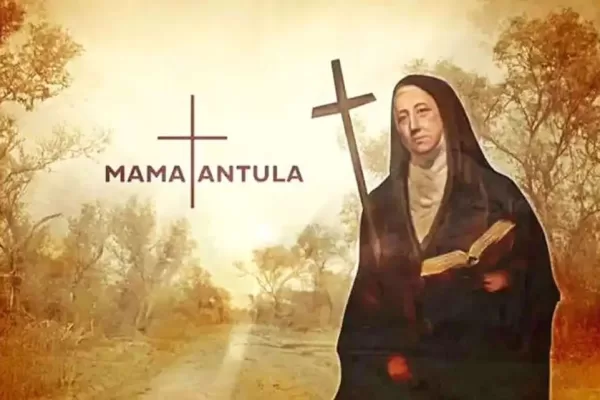
Mama Antula: A new Argentinean saint who inspires the Church
Pope Francis authorized a miracle attributed to the intercession of Blessed Maria Antonia of St. Joseph, better known as Mama Antula. After the due processes were completed, the Dicastery for the Causes of Saints promulgated the decree allowing her canonization. The ceremony will take place on February 11, 2024. The miracle for the canonization The miracle attributed to her intercession which has made possible her canonization is the healing of a person who suffered an ischemic stroke with hemorrhagic infarction in several areas. The empirical evidence collected after the patient’s admission to an intensive care unit in a coma shows the seriousness of his condition. The effects of the stroke were inexplicably reversed after his family, and many other people as well, turned to Blessed Mama Antula’s intercession on his behalf. The first Argentine saint Mama Antula was born in 1730 in Santiago del Estero, which at that time was part of the territory of the Viceroyalty of Peru (but which today is in northern Argentina). She was baptized under the name María Antonia de Paz y Figueroa. In addition to being the first saint to have been born and died on what is today Argentinean soil, Mama Antula, a consecrated laywoman, is considered by some as a true founder of the Argentinean nation. It’s not because of political activity, but because of her tireless proclamation of the gospel that left its mark on the religious and cultural identity of the Argentines. Promoting the spiritual exercises Coming from a prestigious family, from her youth she dedicated herself to assist the Jesuits both in the promotion of 10-day spiritual retreats and in the realization of charitable works. She lived with other women committed to the cause of God, although they did not opt for convent life. The local indigenous Quechua communities gave her the nickname of Antula. Among other things, she was also responsible for keeping alive the flame of the spiritual exercises during the time when the Jesuits were exiled from Argentina (1767-1836). She also universalized their scope, calling absolutely everyone to participate, regardless of social class, profession, or any other difference. Mama Antula dedicated herself fully to this mission, and traveled through towns and cities, sometimes even walking barefoot, calling people to participate. Eventually she arrived in Buenos Aires, where she founded the House of Spiritual Exercises. Her influence and prestige was such that the bishop of Buenos Aires consulted with her before ordaining any candidate to the priesthood. Indeed, no one could receive holy orders without first passing through her House of Spiritual Exercises. Her relevance today Bishop Santiago Olivera was the vice postulator of the cause of Mama Antula and is the bishop delegate for the cause of saints of the Argentine Episcopal Conference. Speaking with Aleteia, he explained that despite being a saint of the 18th century, even today Mama Antula’s life and testimony can teach us about Christian life and about life in the Church: Saints are those who have (…) incarnated the Gospel. (…) And for this reason, the saints, who are beacons and light, are also models and who are always relevant and valid. Mama Antula was born in 1730 and died in 1799, and today we are talking about her with the joy and happiness of knowing of her holiness. (…) She reminds us that we must all walk towards holiness. It’s a primary vocation to which we are all called. By offering Mama Antula as an example, he said, the Church “reminds us of that important pastoral work of being an instrument, a bridge, so that people can meet Jesus through the spiritual exercises, which is her fundamental work.” He compares it to the Gospel passage when a group of friends lower a paralyzed man down through the roof in front of Jesus. “When we bring people to the Spiritual Exercises, we make every effort to put them in front of a gaze that cures, a gaze that heals, restores and loves, Jesus’ gaze, so that the men and women of our time may encounter Him.” Read more…